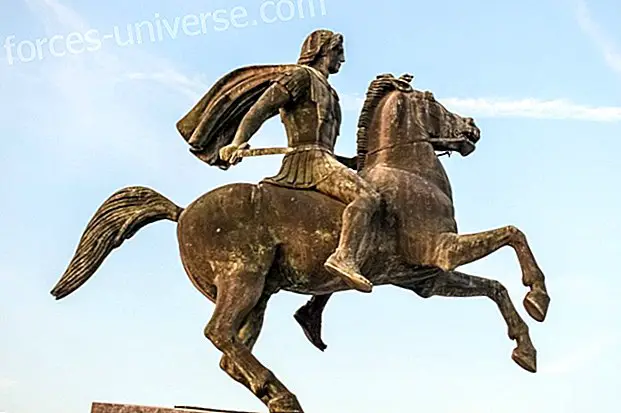
Last Friday, The Unicef Spanish Committee presented its International Prize “Los Niños Primero”, to the Don Bosco Ngangi Center, located in the Congolese city of Goma, very close to the border of Rwanda. It is an area devastated by the multiple tribal wars, in which thousands of minors die who are recruited as soldiers. The Salesian home welcomes these children, as well as street children or girls who are already mothers without having overcome their own childhood. Every day there are about 3, 000 children who pass by, some only to receive food or attend class.
Half of them also live in the center itself. In total about 30, 000 children have been treated. All of them have been cared for and educated by the staff of Don Bosco Ngangi. Education that does not only seek to have a job tomorrow. They are also trained in respect for human values with an eye on the future, in that future that will be theirs when they grow up, in the hope that they will not commit the mistakes of the past, especially the great error of the war We talked about all this with Salesian father Mario Pérez, director of the center, in this interview recently granted at the Madrid headquarters of the NGO Youth and Development, which works side by side with the Salesians.
Positive News: First of all, we would like to congratulate you on the award granted by the Unicef Spanish Committee. What does this recognition for the work of the Don Bosco Ngangi center mean to you?
Mario Pérez: The first thing is to highlight the fact that it was in Spain. This is one of the countries that invests most in Africa from a humanitarian point of view. The footprints seen from Spain in the continent are footprints of hospitals, schools, aid to cooperatives or development program.
I remember an anecdote that happened last year, when the city of Goma was surrounded because war could break out. There were people fleeing, especially from the northern part. In general we only accept children or women with children, but not adult men, because we realized that some of them had weapons. Among the people who arrived there was a woman who said that in the center there was a Spanish father, and that the Spanish are of good Spanish. He was told that he was an American, because although I am Venezuelan, all Americans are called there. It was the phrase of a person who may not even know where Spain is, but who has seen a lot of Spanish presence and knows what the Spaniards do, through missionaries, NGOs or other agencies.
The prize is also a way to make the voices of children heard, so that it is known that there are children who suffer and that they have to be helped. In this work there are more than 30, 000 children who have been saved through the help of many people. Some of these people were European volunteers. In addition there were people of different beliefs, including Muslims and Hebrews, to whom we must add a lot of staff even to the youth themselves. The fact is that this award is not for one person, but for a group of people, and I find that very beautiful. I have come because I am responsible, but I would have liked to bring some volunteer or some mom, who sometimes does not know how to read or write, but who do wonders for others.
N +: It is very interesting to analyze the evolution of this rubber center. In principle, I was going to be dedicated to carrying out extracurricular activities designed for children and young people, but later it became a school because 80% of the children in the area They are out of school. Later there was the beginning of the ethnic conflict and the war in neighboring Rwanda, and Don Bosco Ngangi also became a reception center. This ability to adapt in such difficult circumstances has a lot of merit.
MP: Here the doors are always open for children and young people. Also in the case of families when they are single women with children. In this area, everyone has experienced situations of war and you have to help yourself. We have never thought whether we had means or not. In general we were always short of media, but we have never failed.
In the last crisis, we were in the center around 3, 000 people between children and staff. They were joined by refugees who arrived fleeing armed conflict. In the end there were about 7, 000 people in total that we had to feed. We left with a stock for almost two months. In a matter of four weeks this stock would have to be finished with so many people, but we realized that it still lasted and we managed to feed everyone. In addition, some aid began to arrive, especially from Spain. The Madrid City Council gave us a very important help.
The children themselves also contribute. For example, they tell us that instead of making a solid meal at noon, we make it liquid and so it reaches us for more. When the children themselves feel supportive, you cannot say no.
N +: Don Bosco Ngangi is located in an area gripped by a multitude of conflicts. It is located in an enclave very close to other countries such as Rwanda, Congo, Uganda, Burundi or the northern part of Sudan. It is a region in which armed clashes are frequent in which many child soldiers are usually recruited.
MP: This is one of the most terrible crimes that the international community would not have to pass up. There are still important people from the army who have enrolled thousands of children, and yet they live with great freedom and tranquility.
Children nine years old, sometimes even eight, have been soldiers or have participated in military operations. They are subjected to monstrous trainings to turn them into war machines. They are given drugs and undergo brutal physical exercises until total fatigue. As a reward they are fed. They are even forced to step on dead people and mutilate bodies. So until the child becomes a monster. Only with the promise of food, the child is able to do anything.
The first weeks with a child soldier are hard, you have to be next to him. Sometimes it is necessary to use force, in the sense of blocking his arms, because for example if he has a weapon, he can use it against anyone. So until little by little he calms down, he begins to have confidence with the educators and talk to the groups of children. Already after the second week this confidence begins to emerge.
N +: We are talking about education not simply as an academic preparation of the child, but in the integral sense of training him as a person.
MP: The stage in which the child leaves the armed group lasts between one and two months. Although the State officially says that children cannot be enrolled in the army, you have to wait until they give you a document that certifies that the child is outside the armed forces. Until that demobilization document is available, the child cannot leave, because it can even be considered a deserter.
In that period we also contacted the family, to see if the child can be reunited with her. There are many children who cannot reunite because they have sometimes committed crimes in the family itself. Some have killed their own father or another relative. Sometimes reunifying the child means endangering the family, either because the child has committed crimes in the village and may be subject to reprisals by the neighbors, or because armed groups are close and can grab it again, or put pressure on the family.
That first period is therefore used to obtain the demobilization document and see the possibility of family reunification. Meanwhile, an attempt is made to build a life project with the child. In general, little by little the child sees what other child soldiers who study, have finished training or even work. He sees that there are possibilities of having a different life and that he can make a living without having to make war.
When the project of wanting to study is born, there is the possibility of doing it in the family, provided there is a school nearby and is accepted. The other option is to return to the center after the stay with the family. Then begins a training program that will depend on the level of education you have.
It is interesting the change that takes place in the child. At the beginning of the process, child soldiers often accuse other children of being street children and claim that they are thieves and that everyone must be killed. Then, when they return from reunification, when they become part of a boarding school, or a house, because we prefer to use the name house, they no longer want to mix with newcomers. They say they are child soldiers without education and do not respect anyone. Then even your language changes.
N +: Another serious problem that affects children and is very frequent in the Congo is the use of child labor in the extraction of coltan. Are children also welcomed who have been victims of this type of abuse?
MP: We have received few cases, in fact. In our area there are mainly Rwandan peasants or refugees living inside the jungle. But in other areas, for example to a region where I will go shortly to start a work, many children and young people are used to extract coltan is very bad conditions. There many children die in the mines or are exploited.
N +: Keep in mind that coltan is exploited for the benefit of developed countries. And in relation to child soldiers, we once interviewed volunteers from the NGO DYES, who works in Rwanda. They explained to us that child soldiers use short weapons, which are especially easy for them to handle. These weapons are not manufactured in Africa, but in rich countries. In this sense, it is necessary to send a very clear message to society, to political leaders and to companies.
MP: I think it would be important for aid to be linked to respect for human rights, as the AECID (Spanish Agency for Development Cooperation) is doing now. We must make a country understand that it can receive aid, but it must commit to respecting those values so that society can change and grow. And it must start with children, which is the most fragile part of society.
The education provided by the Salesians precisely promotes human rights. All children are explained that they have suffered in their lives because their rights have not been respected, and we should not pretend that it is only adults who solve it. Children have to be the first protagonists in promoting it. In fact, every week they carry out a small project in which they have to see how they are going to apply a right, for example the right to study, food or clothing.
Sometimes children arrive from the border of Rwanda, who usually suffer from malnutrition and cross the border, walking up to 10 kilometers on foot to come to the center. When they see them, the children of the center, who are also in a bad situation, but a little better, think what they can do for others to help them. It is beautiful that even young children of 6 years have initiatives to promote a right for others. That shakes us all, because it has even made us change some rules.
For example, we had to change the schedules for one of these initiatives. There are children who spend the day in the center, but then sleep outside. Sometimes they lose their notebooks or get wet. They may sleep in a piece of plastic of 10 or 12 square meters, where maybe a dozen people live. It is impossible to think that they can study there. Other children, those who enjoy better conditions, long ago kept their classmates' notebooks and did their homework at night. They said they did it to guarantee the right to study of the other children (laughs from Pérez and the interviewer). That has forced us to change many schedules so that children who do not have a space can do their homework.
N +: This training up to what level does it reach academically?
MP: We have from newborns to young people 18 or 19 years old. Newborns usually come from areas where massacres have occurred, or they are children of people who were fleeing. It may also be that the mother gave birth and died during childbirth or had AIDS.
Our first goal is to reunify the child with his family. When this is not possible, a project is started up, which depends on the situation of each child. You have to cover your basic needs, such as food, clothing and health, and then education, according to the age and level of each.
First is the elementary school. There are three possibilities. The first is literacy for older children who have never studied. It is for children of 14 years or so. For children who did study, there is a level of primary recovery with a special state program also supported by UNICEF. In about three years the child recovers the level of primary school and takes an exam to obtain the primary certificate, which allows him to enter secondary school. Finally there is the normal primary school, with all its complete content program.
At the secondary education level we also have three types of programs. The first is the official program. Then there is a type of program in Congo called short cycle, which consists of learning a trade in four years. There are also shorter courses of two or three years in some of the trades. They are for children aged 15 or 16 who have family responsibility and want to learn something fast. Finally, there are shorter courses of six months or so for children who want to learn a specific thing, especially child soldiers. Many of them, having taken those short courses, choose to study more because they realize that those who have learned more things have better possibilities.
Then there is the case of mother girls. They are 13 or 14 year old girls; many were raped and because of that they had children. For them we also have different programs, depending on the situation of each one. Now we are extending them more and more because we often find that families, because of what has happened to them, do not accept them. These girls will have to make their lives alone, and in that culture, a single woman is usually rejected.
We must ensure that a girl who is in this situation can get accommodation, attend to her son and earn a living. But then there is the family situation and integration into society. In any case, it is about the girl becoming self-sufficient.
N +: Do you maintain contact with children who have already finished their stay at the center?
MP: With many of them yes. There is an association of alumni. On the other hand, we always have many things to build and do, and we often turn to those who have already finished training. For example, we are now finishing the construction of new classes, work in which Spanish cooperation has collaborated, and the work is being completed by former students. Other times we are requested by several agencies that need to be done a job, for example carpentry or sucrose, and we also turn to groups of alumni.
N +: That is, they are not only educated, but also given work.
MP: We get them a job, first with an internship period in which they are accompanied, making us responsible and looking for insurance so that people accept them. Many of them stay to work there after finishing the internship.
We used to give them loans when they finished training. Now they are organizing small groups, which they create themselves, to give themselves larger loans and accompany them. Another option is to receive more training on some subject they need to know. For example, if a mason discovers that it is good for him to learn electricity or plumbing, he can take one of our courses.
In addition, we have a microcredit company for families and alumni. We are even thinking about creating an office dedicated to work and following all those cases outside the center. The idea is to create an autonomous office in the future with its own qualified staff to follow the people who work. This will allow companies to offer specialized labor and accompany young people in the world of work and see if they have difficulties or should improve training. You can also use these units with the aim of promoting other initiatives, for example the creation of a cooperative that is in charge of health and provides health care to children when they are sick. It would be about creating services for themselves financed with what they can contribute.
N +: We are an international network that tries to promote initiatives that seek to improve today's society. We say that another world has to be possible. What can we do to change things, according to a missionary?
MP: Working with children makes us think that the world can be better. Before, he insisted that aid should be channeled to the extent that the rights of children are respected. It is necessary to create a development model with these parameters in mind. If we propose that as a logical scheme of work, another better world will be possible.
CONTACT INFORMATION:
www.unicef.es
www.jovenesydesarrollo.org
Photo: Salesian missionary Mario P rez at the Youth and Development headquarters in Madrid.






